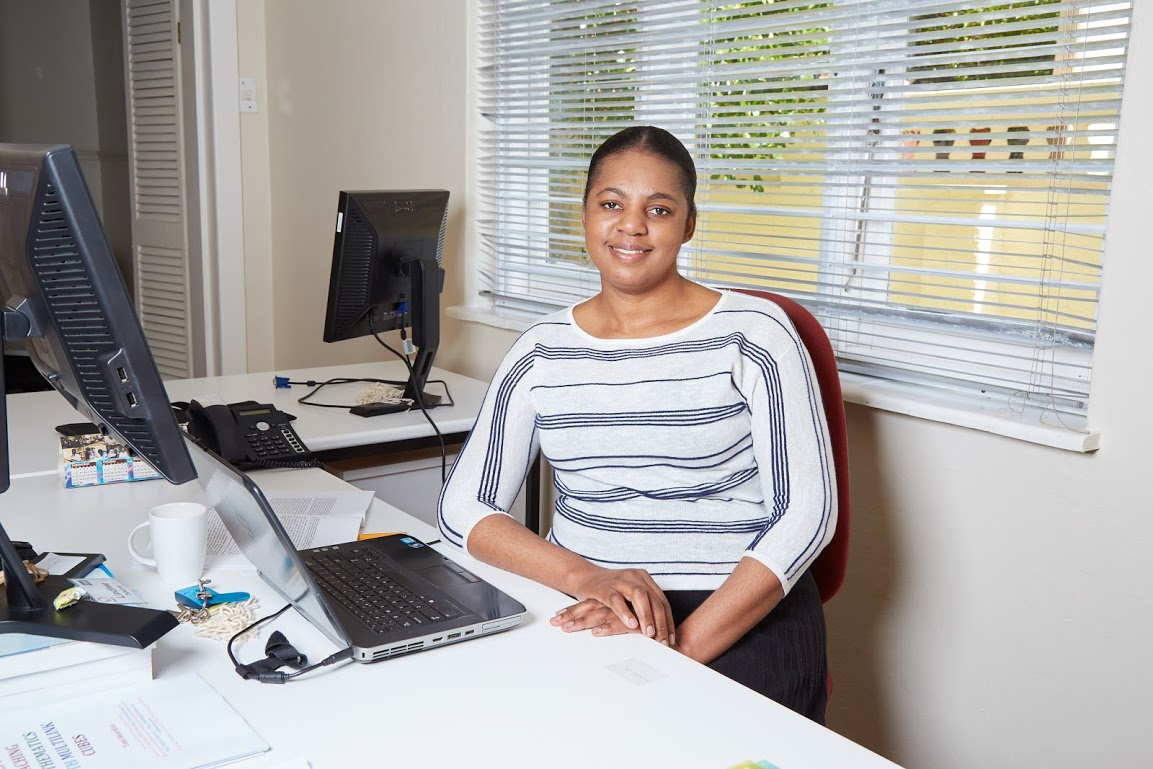Grade 4 to Grade 7 (Intermediate Phase) Maths teachers in under-resourced schools in the Eastern Cape are not proficient in English, the language they are supposed to teach in, and their knowledge of mathematic content is not up to scratch.
This is one of the findings of a recent study at Stellenbosch University (SU).
“Maths teachers in the Intermediate Phase (IP) struggle to master English and this lack of competency compromises the quality of mathematics instruction," says Dr Lindiwe Tshuma a Research Fellow at SU and a Specialist in Primary Mathematics at the African Institute for Mathematical Sciences Schools Enrichment Centre (AIMSSEC) in Muizenberg.
“The data suggest that while some teachers make an effort to teach in English and promote learner discourse in the prescribed language of instruction, the practice was not consistent," she adds.
Tshuma, who recently obtained her doctorate in Curriculum Studies from SU, endeavoured to analyse the existing relationships between IP teachers' language competencies and mathematics instruction at primary schools in the Eastern Cape. She says her study was motivated by her work with IP mathematics teachers from under-resourced schools in the Eastern Cape.
“These teachers are often non-specialists and have to teach mathematics due to the shortage of specialist mathematics teachers at primary school level, more so in under-resourced school that cannot attract and retain better qualified teachers."
As part of her study, Tshuma used English Language Competency Assessments, Mathematics Word Problem Assessments, questionnaires, interviews and classroom observations. Both IP mathematics teachers and IP mathematics teacher educators from different universities in the country participated in the study.
She assessed the teachers' competency in English through the administration of standardised English Language Competency Assessments, piloted in five different universities in South Africa. These assessments checked teachers' comprehension of the language while the mathematics word problem assessment checked their application of the English language in solving mathematics word problems.
Tshuma says the study showed that a teacher's competency in English does indeed relate to the delivery of IP mathematics content to learners.
“Teachers with a better mastery of the language of instruction are in a better position to explain new terms to their learners and to create language learning opportunities within mathematics content delivery."
“On the other hand, teachers with a poor mastery of the language of instruction are unable to effectively assist learners to perform basic reading and writing skills or to guide learners to explain mathematical concepts in their own words; skills through which the mathematical content is often assessed."
“The study highlights teacher competency in the language of instruction as one of the most significant predictors of mathematics performance; this is particularly significant since the country's indigenous languages are yet to be fully developed to support mathematics instruction."
Linguistically underprepared
Tshuma says teacher education institutions are not doing enough to linguistically prepare IP mathematics teachers well enough to use English meaningfully as a language of instruction.
“It is the duty of all university education departments as well as other teacher education institutions to develop and improve IP mathematics teachers' English language competence."
“One of the ways of improving the quality of IP mathematics education should include investing in teachers' linguistic infrastructure right from initial teacher education curriculum through to Continuing Professional Teacher Development programmes. Teachers alone cannot plug this gap in mathematics education; they need the support of teacher education institutions and other stakeholders in education."
“Teachers need to be equipped with the necessary skills on how to learn new content through language."
“Competence in English is necessary for teachers to engage in high quality mathematics instruction in English. However, it may not be sufficient. They also need content knowledge, pedagogical content knowledge, and specific knowledge of how to teach mathematics to English learners."
Tshuma points out that only 1 out of the 10 sampled teacher educator institutions provided modules that focus on the use of English as language of instruction, but unfortunately the modules are provided at Master's level which the majority of teachers in under-resourced schools would not have attained by the time they are deployed to schools.
She adds that although English is a foreign language to the majority of the teachers who use it as language of instruction, the mere fact that our current Language in Education Policy requires them to use English in the classroom calls for high levels of proficiency in that language. The Minimum Requirements for Teacher Education Qualifications requires IP teachers to at least have Additional Language proficiency in English.
“However, the answers provided by the teachers in the English language proficiency assessment as well as in the Mathematics word problems revealed grammatical and idiomatic errors and this study consequently infers that Additional Language proficiency in the medium of instruction is not good enough for an IP mathematics teacher."
Tshuma worries that if the status quo remains, poor teacher language competency and grasp of the mathematical content knowledge is likely to be passed on from the teachers to the learners.
“We may want to ask who is failing the nation: are the teachers failing the learners or are the teacher educators failing the teachers who in turn fail the learners?"
“Without enshrining English at the expense of other official languages there is a need to cater for the English learners who are in the education system today and are supposed to be taught and assessed in English, as stipulated by the current education policy."
Tshuma says she hopes her study will contribute significantly to the current debate on language use in education and stimulate awareness among developers of teacher education curriculum, so that teachers' mastery of the language of instruction is prioritised for the delivery of meaningful content in under-resourced classrooms.
- Main photo: Pixabay
- Photo 1: Dr Lindiwe Tshuma in her office.
FOR MEDIA ENQUIRIES ONLY
Dr Lindiwe Tshuma
Specialist in Primary Mathematics
AIMSSEC, Muizenberg
Tel: 0217879265
E-mail: lindiwe@aimssec.ac.za
ISSUED BY
Martin Viljoen
Manager: Media
Corporate Communication
Stellenbosch University
Tel: 021 808 4921
E-mail: viljoenm@sun.ac.za

